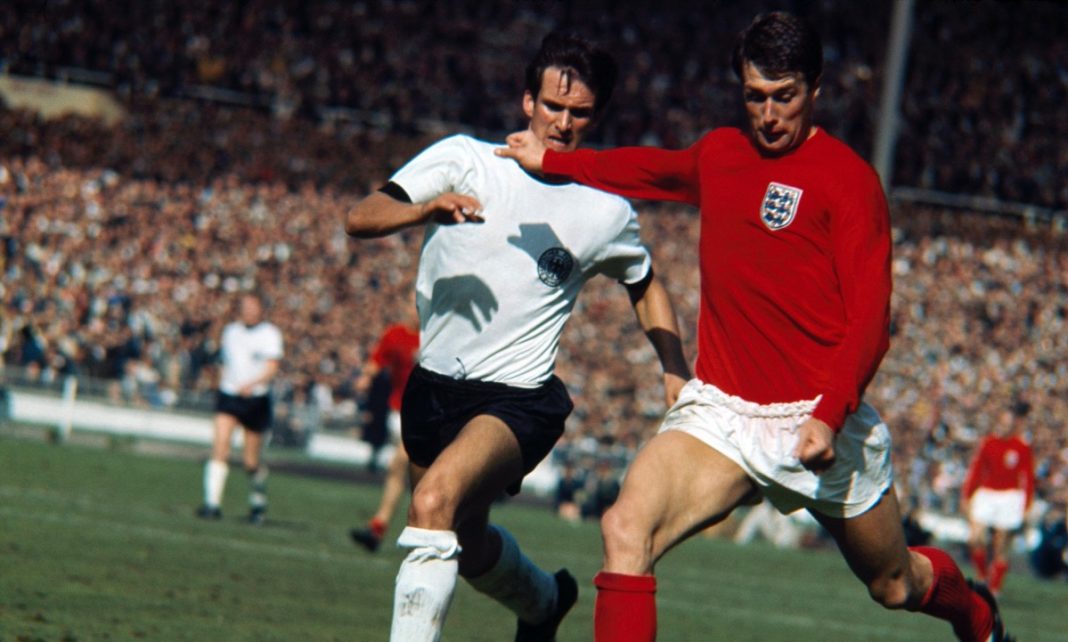If you are a betting enthusiast, you understand how much it depends on the correct decision of the arbitrator. Therefore, before going to Betika login to my account login page, let’s discuss a case that has stirred fans’ minds for 57 years. The 1966 World Cup, for the first and so far only time, brought gold medals to the founders of football. Hurst’s winning goal came after a tip from Soviet linesman Bahramov. The debate about whether the ball crossed the goal line continues today.
Linesman’s Fateful Decision
The English left the group in first place without conceding a single goal. The English rival in the final, the German national team, also made it to the final with little effort, so the forces on the field were approximately equal.
The final occurred on July 30 in London at a packed Wembley Stadium; according to official data, almost 97 thousand spectators attended the match. The Swiss Gottfried Dienst officiated the match as the chief referee. He was assisted by linesmen Karol Galba from Czechoslovakia and a representative of the USSR, Tofik Bahramov.
By the 18th minute, the teams had already exchanged goals. Jeff Hurst responded to Haller’s goal with a precise shot. The draw lasted precisely an hour of net time until Martin Pieters shot past West Germany goalkeeper Hans Tilkowski. The hosts of the 1966 World Cup failed to maintain victory in regulation time – Wolfgang Weber equalized the score in the 89th minute.
The apex came in the 101st minute. Alan Ball burst down the right flank and crossed into the penalty area, where the German defenders allowed Hirst to take the pass, turn, and deliver a powerful falling shot. The ball hit the crossbar, bounced down, landed on or near the goal line, and was kicked towards the center of the field by the German players.
The British immediately began to signal to the chief referee that the goal would be scored, but Dienst was not ready to make the fateful decision alone; he did not have time to see the episode in all its details. The Swiss referee consulted with Bakhramov using gestures, and the linesman pointed to the center. The Soviet referee did not doubt that the goal should have been counted. The Germans’ anger knew no bounds, but the situation could no longer be changed. In the time remaining before the final whistle, Hurst scored a hat trick and set the final score at 4:2.
What Actually Happened
After the 1966 World Cup final, the football community was divided into two parts depending on their attitude towards the goal scored in a controversial situation. The British and those who supported their point of view referred to the excellent position taken by Bakhramov. At the same time, England striker Roger Hunt said that he saw how the ball crossed the goal line and did not even try to finish it.
Another part of fans and experts argued that after hitting the crossbar and landing behind the goal line, the ball should have bounced into the net. Football players from the German national team spoke about chalk particles flying into the air. It followed that the ball touched the goal line, and the goal could not be counted.
Subsequent Revelations
In his memoirs, Bahramov admitted that he did not see when the ball touched the field. He did not attach much importance to this fact since it seemed that the ball bounced not from the crossbar but from the goal net. In the 90s of the last century, the University of Oxford used computers to simulate the decisive moment of the final match of the 1966 World Cup. It turned out that Hirst was 6 cm short of scoring. It is not surprising that many, especially in England, questioned the results of these studies.
The captain of the German national team, Uwe Seeler, at the reception after the final match, approached Bahramov and asked him for forgiveness for the controversy after the winning goal of the British. According to the striker, he and his teammates watched many video replays and realized that the judges made the right decision. In January 2016, Sky Sports recreated the moment on a computer and concluded that there was a goal after all. Thus, even now, there is no consensus among fans.
In Conclusion
The 1966 World Cup final became so controversial that even 57 years later, it is still remembered and debated. Fans run computer simulations and come to different conclusions. Thus, we will never know for sure whether that famous goal actually happened. But in any case, this event and its participants forever wrote themselves into the history of football as well as the best Kenyan footballers of all time.







